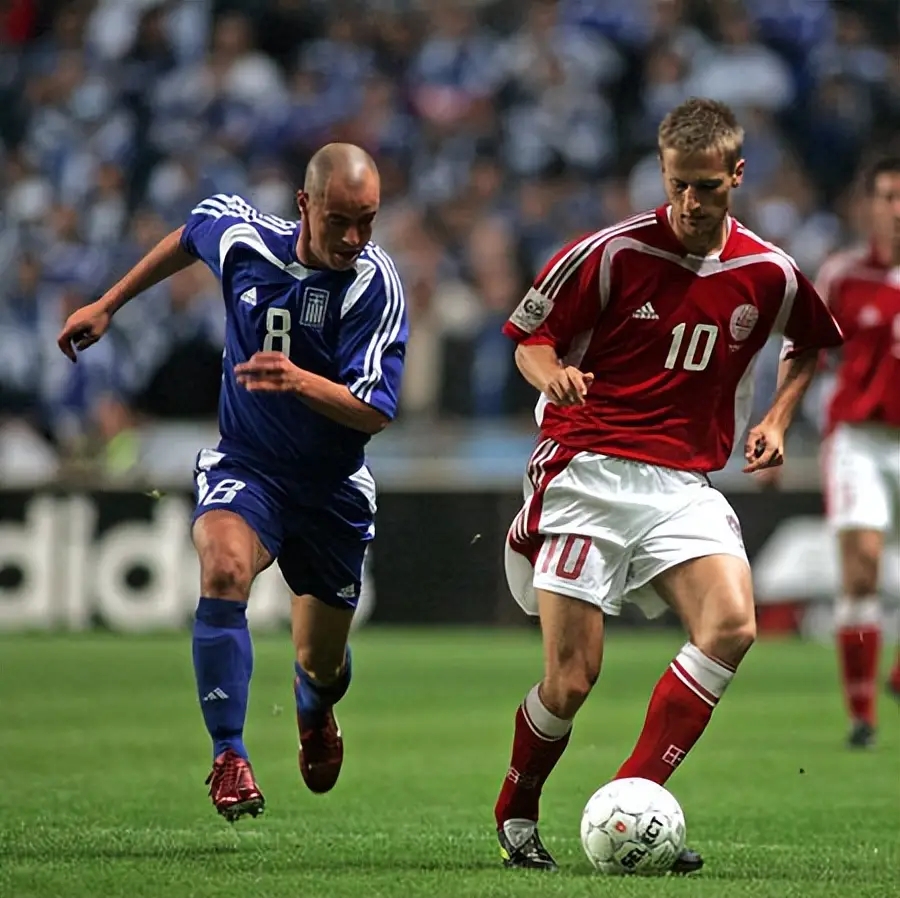
Karaiskakis Stadium Set for a Crucial Clash – Greece Host Denmark in a Pivotal World Cup Qualifier
The Karaiskakis Stadium will witness a decisive battle that could shape the group’s qualification race, as Greece welcome Denmark in this key European World Cup qualifier. This is not only a clash of two contrasting footballing styles but also a strategic duel tied to pride and the quest for direct qualification. Greece come into the match full of confidence after a 5-1 victory over Belarus, topping the group, while Denmark sit second after a frustrating 0-0 draw against Scotland. The three-point gap makes this encounter especially significant.
On the current standings, Greece lead with 3 points, while Denmark trail with 1. This narrow gap adds layers of strategy: for Greece, a home victory would widen the distance from their pursuers and lay a solid foundation for qualification; for Denmark, three points are vital to avoid falling behind in a fiercely competitive group. Greek head coach Jovanovic emphasized before the match: “This is no ordinary game—every ball could decide our fate.”
Head-to-head history presents an intriguing contrast. Denmark hold the upper hand with 8 wins, 4 draws, and 3 losses in 15 meetings, losing only once in official competition since 1981. Yet, Greece remain unbeaten in their last four home games against the Danes (2 wins, 2 draws), turning this stadium into something of a “Danish kryptonite.” Recent form also highlights the difference: Greece have lost just twice in their last 14 home matches (10 wins, 2 draws), building a fortress in Athens, while Denmark have struggled away from home with only one win in their last five road games.
Momentum also favors the hosts. Greece have won 8 of their last 10 matches, averaging 2.3 goals per game, displaying firepower and resilience. Denmark, in contrast, have managed 4 wins, 5 draws, and 1 loss in the same span, but their lack of sharpness was evident in the Scotland stalemate, where they registered only two shots on target. Greek striker Pavlidis is in red-hot form, having scored 10+ goals for six straight club seasons, while Denmark’s Rasmus Højlund—who once netted a hat-trick against Lithuania—still needs to prove himself against disciplined defenses.
Taking all factors into account, the match is likely to be tightly contested. Greece’s home advantage and defensive solidity could offset Denmark’s superior squad depth. While Denmark’s tactical maturity and big-tournament experience make them dangerous, their inconsistency on the road remains a question mark. The key battles will be whether Greece can strike from set-pieces, and whether Denmark’s wing play can break through. Should Greece withstand the early pressure and score first, they could well repeat their classic “1-0” formula, protecting the lead with disciplined defending. Possible scorelines: 1-0 or 2-1.
Regardless of the result, this match will significantly shape the group’s qualification picture. For Greece, even a draw would be acceptable, while victory would put them firmly in control. Denmark, on the other hand, must chase all three points to prevent the gap from widening. As the Athens night breeze flows through the Karaiskakis Stadium, the fate of both teams will turn within 90 minutes—a vivid reminder of what makes the European qualifiers so compelling: every match has the power to rewrite history.

